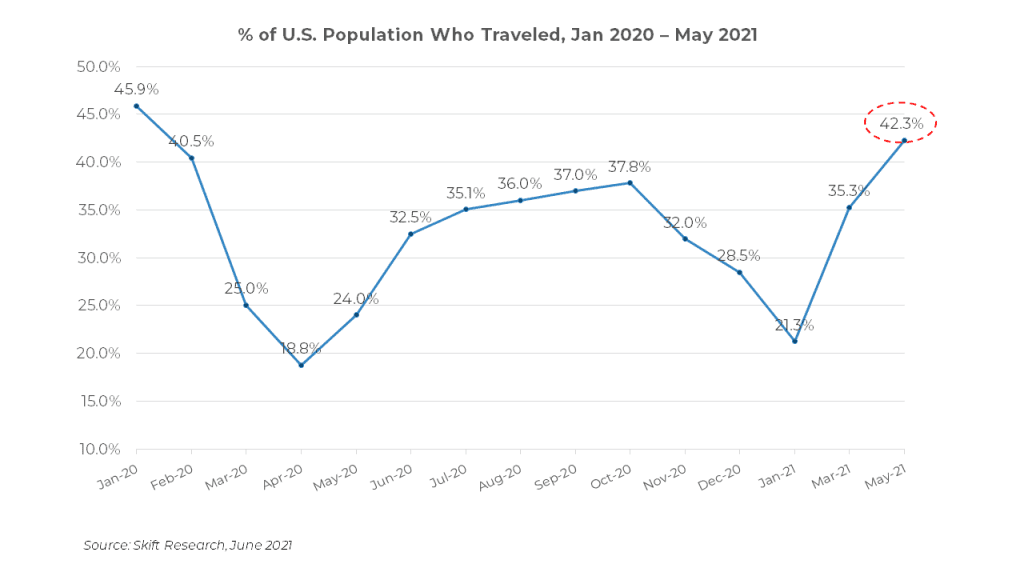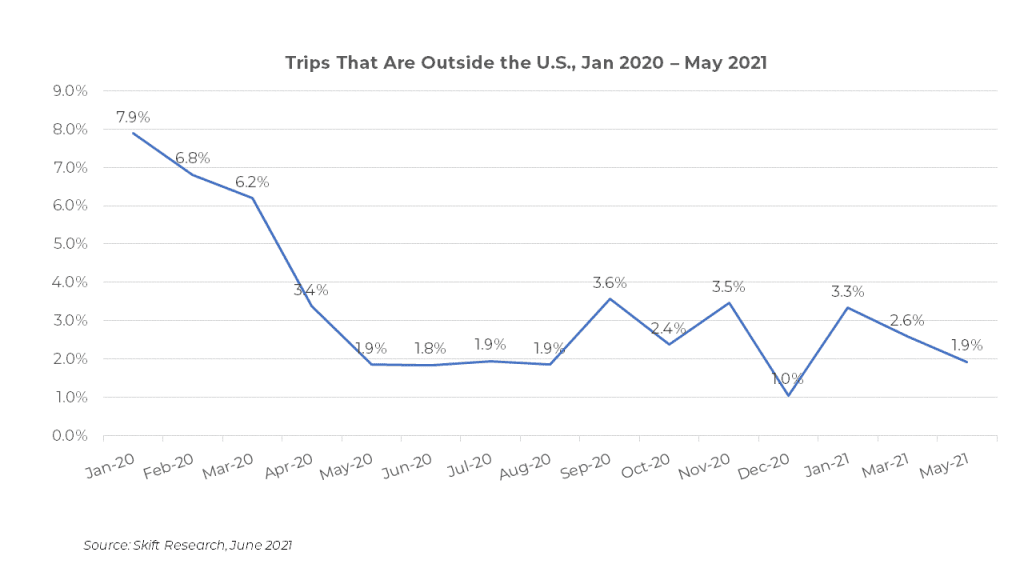Americans Traveling in May Surpassed Pre-Pandemic Levels: New Skift Research Travel Tracker
Skift Take
The number of Americans who traveled in May surpassed those who traveled in February 2020, before the pandemic hit the country. This is an exciting milestone for the U.S. travel industry. We seem to be on track to have one of the strongest summer travel seasons on record in the U.S.
Skift Research’s May Travel Tracker survey report highlights some of the key trends of May travel that will likely continue as we move to the summer vacation season. Among them, domestic travel will continue to be one main theme. International travel only accounted for 2 percent of all trips in May. With the U.S. Centers for Disease Control and Prevention (CDC) easing travel recommendations for more than 110 countries and territories, there could be a boost in international travel this summer. However, infection rates are rising in many Asian countries, and even in the U.K. in the last couple of weeks. Lifting travel restrictions alone might not be enough for a significant outbound travel comeback.
Skift Research introduced a monthly U.S. travel tracking survey in January 2020 to examine the travel penetration rates and detailed travel behavior of the U.S. population. In addition to the factual travel occurrences, we also asked respondents their perceptions on the macro-level economic condition as well their personal financial and travel outlook. We are switching the survey to every other month in 2021. As we move through different phases of Covid-19, our tracking survey captures the fluctuations of consumer travel behavior and intent in real time.
In our newly released U.S. Travel Tracker: May 2021 report, we highlight new and ongoing trends in travel incidences, consumer sentiments and future travel intents in the pandemic world, distilled from our May Travel Tracker survey.
What You’ll Learn From This Report
- Travel incidences, January 2020– May 2021
- May travel highlights
- Covid-19 impacted travel, October 2020–May 2021
- Changing consumer sentiments on the economic outlook, February 2020–June 2021
- Consumer intent for 2021 travel
- Remote work trend and its impact on travel and mobility
- How COVID-19 vaccination might impact travel
After you subscribe, you will gain access to our entire vault of reports conducted on topics ranging from technology to marketing strategy to deep dives on key travel brands. You will also be able to access our proprietary Skift Recovery Index and Skift Health Score data and reports.






